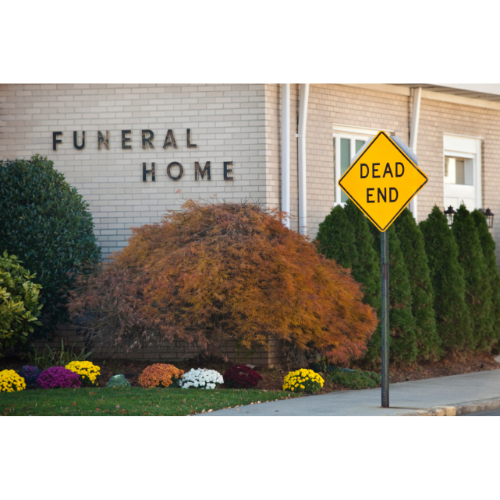The article explores the environmental impact of funerals, highlighting the need for sustainable and eco-friendly funeral options to mitigate the ecological consequences of traditional burial and cremation practices.

Introduction
The environmental impact of funerals encompasses the ecological consequences of traditional burial and cremation practices. With the increasing awareness of environmental conservation, there is a growing concern for eco-friendly funeral practices. Individuals are now exploring sustainable and environmentally friendly funeral options to reduce the ecological footprint associated with traditional funeral practices. Best Priced Funerals is a resource for eco-conscious funeral planning, offering tips on saving expenses and informed decision-making during the funeral planning process. It encourages readers to explore eco-friendly funeral options at Best Priced Funerals for a more sustainable approach to funeral planning.
For instance, the website provides information and resources on funeral planning, funeral gifts, caskets, and other related topics. It offers guidance on how to save expenses when a loved one passes away and aims to help individuals make informed decisions during the funeral planning process.
Understanding the Environmental Impact
The carbon footprint of traditional funerals has significant environmental consequences, including resource usage and emissions. Conventional burial practices involve the use of toxic embalming chemicals, such as formaldehyde, menthol, phenol, and glycerin, which have detrimental effects on the environment. In comparison, cremation releases harmful gases such as carbon monoxide, sulfur dioxide, and other heavy metals into the air, posing environmental challenges. A comparative analysis has revealed that both cremations and burials have significant environmental impacts, with burials generally having a 10% higher environmental impact than cremation. The resource-intensive nature of burials and the release of harmful gases from cremation highlight the need for sustainable and eco-friendly funeral options to mitigate the environmental impact of traditional practices.
Research has shown that the square footage of all cemeteries in the U.S. measures 1 million acres of land, emphasizing the extensive land use associated with traditional burial practices. Additionally, the use of toxic embalming chemicals, heavy metal emissions from cremation, and resource-intensive nature of traditional funerals contribute to environmental degradation and ecological strain.
One significant eco-friendly funeral option is natural burial, which allows the body to decompose naturally and return nutrients to the earth. This practice not only minimizes the use of resources like wood, steel, and concrete but also conserves land space by eschewing the traditional burial vaults and grave liners used in conventional burials. For example, Milton Fields in Georgia offers natural burial grounds that are eco-friendly and open to people of all faiths and religions, providing a sustainable and environmentally conscious alternative for end-of-life arrangements.
Additionally, home funerals and organic, fair-trade cut flower vendors have gained popularity as environmentally friendly funeral options. Families can opt for home funerals, which involve caring for the deceased at home and organizing personalized, eco-friendly ceremonies. Moreover, the use of organic, fair-trade cut flowers for funeral arrangements supports sustainable and ethical practices, reducing the environmental impact associated with traditional floristry. Furthermore, sustainable funeral options such as using bio-board, wicker, or cardboard coffins, and planting a tree in memory to commemorate loved ones, are increasingly preferred by individuals seeking to minimize their ecological footprint. For instance, The Living Urn offers biodegradable urns for cremations that allow the ashes to be planted with a tree, providing a sustainable memorial option for families. These eco-friendly funeral practices not only reduce the environmental impact of traditional funeral services but also contribute to the conservation of natural resources and the promotion of a more sustainable approach to funeral planning.
The shift towards green funeral options and practices reflects a growing commitment to environmentally friendly end-of-life arrangements. These sustainable alternatives not only mitigate the environmental impact of traditional funeral practices but also offer families the opportunity to honor their loved ones in ways that align with their eco-conscious values. It is essential for individuals to explore and embrace these green funeral choices to contribute to environmental sustainability and promote a more ecologically responsible approach to funeral planning. For those interested in exploring a comprehensive range of sustainable funeral products and services, Best Priced Funerals is a valuable resource that can provide guidance and information on eco-friendly burial options and practices.
Green Funeral Options and Practices
The concept of natural burials has gained traction due to its environmentally friendly benefits, such as the return of nutrients to the earth and the conservation of land space. This practice allows the body to decompose naturally, providing essential nourishment to the soil and promoting ecological sustainability. For example, Milton Fields in Georgia offers natural burial grounds that are eco-friendly and open to individuals of all faiths and religions, reflecting the inclusive nature of this approach to funeral practices.
In addition to natural burials, there has been a notable surge in green or natural burial practices and home funerals, signaling a shift towards more sustainable funeral options. These alternatives prioritize reducing the environmental impact of traditional funeral practices by minimizing resource consumption and toxic emissions. Moreover, the availability of organic, fair-trade cut flower vendors further contributes to an environmentally conscious approach to funeral arrangements, reflecting a holistic commitment to sustainability in the funeral industry. Families are also embracing sustainable funeral options, such as using bio-board, wicker, or cardboard coffins, and planting a tree in memory to honor their loved ones. Furthermore, the use of biodegradable urns for cremations, like those offered by The Living Urn, aligns with the growing demand for eco-friendly memorialization, as these urns allow for the integration of ashes with a tree, creating a sustainable and living tribute to the departed. For comprehensive guidance on eco-friendly burial products and services, individuals can turn to Best Priced Funerals, which advocates for a sustainable approach to funeral planning, providing a range of environmentally friendly options for consideration.
 Eco-friendly Alternatives to Embalming
Eco-friendly Alternatives to Embalming
In addition to the environmental impact of traditional embalming practices, it is essential to explore eco-friendly alternatives to reduce the adverse ecological effects of funeral practices. One such alternative is the use of non-toxic embalming fluids, which are biodegradable and do not harm the environment. These fluids are made from natural ingredients and do not contain harmful chemicals, addressing the concerns associated with the traditional embalming process. By promoting the use of non-toxic embalming fluids, funeral providers can significantly contribute to environmental sustainability while ensuring respectful treatment of the deceased.
Furthermore, another eco-friendly alternative to embalming is the practice of refrigeration or dry ice preservation. This method eliminates the need for toxic embalming chemicals altogether, offering a more environmentally conscious approach to preserving the deceased before the funeral service. Additionally, a study by researchers from various universities in Brazil and the Department of Civil and Environmental at Universidad de la Costa, CUC, has emphasized the importance of choosing renewable, non-toxic materials for caskets or urns to minimize the environmental impact of burial practices. By highlighting these alternatives, funeral providers can effectively reduce the ecological footprint of traditional embalming practices and embrace sustainable alternatives that align with the growing demand for eco-friendly funeral options. Best Priced Funerals offers a range of eco-friendly embalming alternatives and sustainable funeral products, providing consumers with accessible and environmentally conscious choices for funeral planning.
Sustainable Materials for Caskets and Urns
When considering the environmental impact of traditional funerals, it’s essential to address the materials used for caskets and urns. Conventional burial materials such as wood, steel, copper, and bronze have significant environmental implications for resource conservation and sustainability. These materials require extensive natural resources for production and contribute to environmental degradation during the extraction and manufacturing processes.
In contrast, eco-friendly funerals emphasize the use of sustainable materials for caskets and urns to minimize environmental impact. For example, biodegradable caskets or shrouds made from environmentally sustainable materials like bamboo, willow, or recycled cardboard are gaining popularity as they decompose naturally and minimize the ecological footprint of burial practices. These sustainable materials not only reduce the environmental impact of funerals but also promote the conservation of natural resources by utilizing renewable and biodegradable alternatives.
Moreover, providers like Best Priced Funerals offer a diverse range of sustainable caskets and urns, providing environmentally friendly options for funeral planning. By choosing these sustainable alternatives, individuals can contribute to a more eco-conscious approach to funeral arrangements, aligning with the growing demand for environmentally responsible practices in the funeral industry. The availability of sustainable caskets and urns underscores the importance of considering eco-friendly materials as a crucial aspect of mitigating the environmental impact of traditional funeral practices and promoting sustainability.
Mitigating the Environmental Impact
Mitigating the environmental impact of traditional burial and cremation practices is essential for promoting sustainability in funeral services. One key step in reducing the environmental impact of burial is bypassing embalming, which involves the use of toxic chemicals such as formaldehyde, menthol, phenol, and glycerin. By opting for embalming alternatives, such as refrigeration or natural preservation methods, the release of harmful chemicals into the environment can be minimized, contributing to a smaller ecological footprint.
Furthermore, choosing green burial options is another effective way to mitigate the environmental impact of traditional funerals. Green or natural burial practices involve interring the deceased in biodegradable caskets or shrouds, allowing the body to decompose naturally and return nutrients to the earth. This sustainable approach not only reduces the use of non-biodegradable materials but also conserves land space, as natural burial sites are designed to integrate with the surrounding environment, promoting ecological harmony.
In addition to burial practices, measures to reduce the environmental impact of cremation are also crucial. Utilizing renewable, non-toxic materials for caskets or urns in cremation processes can help minimize the ecological effects of this disposition method. For example, the use of biodegradable urns or caskets made from sustainable materials, such as bamboo or recycled paper, can significantly contribute to a more environmentally friendly cremation process. By addressing the environmental concerns associated with both burial and cremation, individuals can make informed decisions to promote sustainable funeral practices. Best Priced Funerals offers guidance on minimizing the environmental impact of funeral practices and promoting sustainable funeral options, providing a comprehensive approach to eco-conscious funeral planning.
The Need for Eco-friendly Funeral Providers
The shift towards eco-friendly funeral options is gaining momentum, driven by the increasing awareness of environmental impact and the demand for more sustainable practices within the funeral industry. Funeral providers are recognizing the need to offer environmentally conscious options, reflecting the evolving attitudes of consumers who seek to minimize the ecological footprint of end-of-life rituals. In response to this shift, consumers are encouraged to conduct thorough research and ask pertinent questions when planning funerals to ensure their choices align with sustainable and environmentally friendly practices. This includes seeking funeral providers that offer eco-friendly options, such as biodegradable caskets, natural burial grounds, and sustainable embalming alternatives. By engaging with providers like Best Priced Funerals, individuals can access a wide range of eco-friendly funeral services and resources, empowering them to make informed decisions and adopt a more environmentally conscious approach to funeral arrangements. Through the availability of these resources, funeral providers play a crucial role in guiding and supporting consumers towards more environmentally friendly end-of-life arrangements, contributing to the broader shift towards sustainable funeral practices.
 Alternative Forms of Disposition
Alternative Forms of Disposition
As we strive to address the environmental impact of death, alternative forms of disposition have emerged to offer more sustainable options for funeral practices. For instance, promession and alkaline hydrolysis are innovative methods that promote ecological sustainability by reducing the environmental footprint of traditional burial and cremation practices. Promession involves freeze-drying the body and using vibrations to break it down into a powder, which can then be returned to the earth as compost, providing a unique and environmentally friendly alternative to conventional burial or cremation. Alkaline hydrolysis, also known as water cremation, uses water, heat, and alkaline chemicals to accelerate the natural decomposition of the body, resulting in a smaller ecological impact compared to traditional cremation methods. These methods not only reduce the use of resources but also minimize emissions and the release of harmful substances into the environment, making them more environmentally sustainable options for end-of-life disposition.
Furthermore, the funeral industry has witnessed the emergence of limited but promising alternatives, such as open-air cremation and burial-at-sea services, to cater to the evolving preferences of individuals seeking environmentally friendly disposition methods. Open-air cremation, which takes place in specially designed facilities, utilizes clean energy sources and minimizes emissions, aligning with the principles of environmental conservation and sustainability. On the other hand, burial-at-sea services provide an eco-conscious approach by allowing individuals to be laid to rest in the ocean, promoting the return of nutrients to marine ecosystems and reducing the land footprint associated with traditional burials. These evolving options reflect the growing awareness and demand for sustainable funeral practices, offering individuals meaningful and environmentally friendly choices for their end-of-life arrangements.
For those seeking more information on these alternative forms of environmentally friendly disposition, resources like the Funeral Consumers Alliance and the FTC’s Funeral Rule provide valuable insights to support informed decision-making for sustainable funeral planning. Additionally, Best Priced Funerals offers a diverse range of sustainable funeral options, providing comprehensive guidance and resources for individuals looking to explore environmentally friendly disposition methods for their loved ones.
Addressing Environmental Concerns in Funeral Planning
When addressing environmental concerns in funeral planning, it’s essential to recognize the detrimental impact of conventional burial practices. Traditional burial methods involve the use of toxic embalming chemicals, such as formaldehyde, menthol, phenol, and glycerin, which can seep into the soil and groundwater, posing a threat to the surrounding ecosystem. Additionally, the extensive resource usage in conventional burials, including the utilization of wood, steel, copper, and bronze, contributes to deforestation and unnecessary depletion of natural resources.
Furthermore, cremation, while a popular alternative, releases harmful gases like carbon monoxide, sulfur dioxide, and other heavy metals into the atmosphere, which can contribute to air pollution and potential health hazards. Therefore, it becomes evident that both traditional burial and cremation practices have significant environmental implications, highlighting the urgent need for more sustainable funeral options. By embracing eco-conscious funeral practices, individuals can play a crucial role in mitigating environmental concerns and promoting a more environmentally friendly approach to funeral planning.
For those seeking guidance and resources for eco-friendly funeral planning, Best Priced Funerals offers valuable support and information. Through their platform, individuals can access a comprehensive range of sustainable funeral products and services, empowering them to make informed decisions and embrace a more environmentally conscious approach to funeral arrangements. By exploring the eco-friendly options provided by Best Priced Funerals, individuals can contribute to a smaller ecological footprint and advocate for more sustainable funeral practices.
Embracing Eco-friendly Funeral Practices
Embracing eco-friendly funeral practices plays a pivotal role in reducing the environmental impact of traditional burial and cremation practices. By transitioning to sustainable and green funeral options, individuals can contribute to a smaller ecological footprint and promote a more environmentally conscious approach to funeral planning. This shift is essential in response to the growing demand for eco-conscious funeral practices, reflecting an increasing awareness of the environmental consequences associated with traditional funeral practices.
For example, the rising popularity of natural burials highlights a shift towards more sustainable funeral options. Natural burials allow the body to decompose in nature, returning nutrients to the earth and conserving land space. This eco-friendly approach not only addresses environmental concerns but also fosters a deeper connection with nature, providing a meaningful and sustainable way to commemorate loved ones.
In addition to natural burials, the use of biodegradable materials for caskets and urns exemplifies the commitment to eco-friendly funeral practices. By opting for sustainable materials such as bio-board, wicker, or cardboard, individuals can significantly reduce the environmental impact of traditional burial and cremation practices. These eco-friendly alternatives not only minimize resource consumption but also contribute to the preservation of natural ecosystems, aligning with the principles of environmental sustainability and conservation.
Readers are encouraged to explore the diverse range of sustainable funeral products and services offered by Best Priced Funerals, providing an opportunity to make informed decisions and embrace eco-friendly funeral practices. By considering sustainable funeral options, individuals can actively participate in promoting a more sustainable and environmentally conscious approach to funeral planning, ultimately contributing to a healthier planet for future generations.
In conclusion, the environmental impact of funerals is a critical consideration in modern society, and the adoption of sustainable and eco-friendly funeral options is essential for reducing the ecological footprint of traditional burial and cremation practices. By embracing environmentally conscious funeral practices, individuals can contribute to environmental sustainability and promote a more eco-friendly approach to end-of-life arrangements. Best Priced Funerals offers a wealth of resources and guidance to support individuals in making informed decisions for sustainable funeral planning, reflecting the growing demand for eco-friendly funeral services and products. It is imperative to continue exploring and advocating for eco-friendly funeral practices to ensure a more sustainable and environmentally responsible approach to funeral planning.

